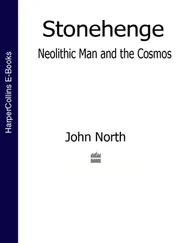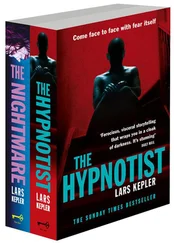I swallowed and gingerlied it out, as if it were some holy relic, some saint’s bones that, roughly handled, might turn to dust. I placed the book on the desk and opened it and saw at once what it was, an album of photographs, such as the one Mary had once showed me, of all her family, going back years.
The first page held but one picture, a man in a business suit standing in front of Blithe House. I instanted who it was, for it was the same face as the painting on the turn of the stairs: my uncle. He had the same bold stare, the same slight play of amusement about his lips. I turned the page. Here he was again, but this time pictured in some photographer’s studio, next to a potted plant. Beside him stood a woman in a white dress, a beautiful woman, her arm linked in his, smiling too, but with a free and easy happiness, not at all like the man, who, looking again, I saw was pleased with himself, like an angler prouding it alongside some big fish he has landed.
I turned the page and found another picture of my uncle, again with a woman, but whether or not it was the same woman, I could not tell, for the photograph had been cut, a ragged square hole where the woman’s head should have been. This shivered me in the silent night and I over-my-shouldered, suddening a feeling of a man standing there with a knife as if to do to me what had been done to the woman in the picture. There was no one there, though already I began to see shapes in the shadowy corners of the room. I looked again at the photograph, at the decapitated woman, and calmed me a little, telling myself it was quite understandable, that someone had removed her head to place it in a locket or some such. It did not sinister in the least. Then I turned back to the first photograph and then once more to the second. The women were not the same person, for the first woman was taller, much taller than this one, which I could see despite the absence of the second’s head. She must have been shorter by half a foot.
I turned the page again. Once again my uncle and the second woman, and again she had no head. Then a third picture, this time with the woman holding a baby, a small baby by the look of it, swaddled and swamped in a long white shawl. Again the woman’s face had been cruelly cut. I turned the next page and there was another picture, the same as the last, except that now a small child, a girl, had joined the others. She stood beside them, tight-lipped and staring fiercely out at the photographer, as though ready to fly at anyone who took a step closer, and the look of her shivered me quite and I thought how I would not like to meet such a child, especially not now, in the dead of night. And then something familiared about her, about those defiant eyes, and it pennydropped: this scary child was me.
I turned the page and there were no more pictures. I franticked back. The family group. If the girl was I, then the baby must be Giles, and the woman without a face his mother, my stepmother, the woman who had drowned. But if so, then why were they with my uncle? It did not make sense.
I stared at the man for some time. From the pose, from their easy standing against one another, it certained he was the woman’s husband and the father of this family. But how could that be? How could my uncle also be my father? I peered at him closer. Perhaps, after all, he was not the man in the oil painting at the turn of the stairs. He was like, very like, but maybe not the same. And then it perfect-sensed me. It was not my uncle after all, but his brother, who family-resemblanced him. They were almost as alike as twins, it was so good a match. Having digested this, another thought came to me and I franticked back to the first page. The man was definitely the same one as in the other pictures, it doubtlessed that. And if so, then this other woman, this woman so happy and proud, must be my mother, who died before she could ever know her little girl.
I stared and stared and the more I looked, the more the woman’s features blurred, for my eyes had misted over, and I had to close the book for fear of drippery. I shut my eyes and deep-breathed. I opened the drawer, put back the book and reluctanted it closed. I picked up my candle and matches and made for the door. I had half-outed it when I suddened a decision. I turned and quicked back to the desk, tugged open the drawer, took out the book, opened it at the first page and snatched my mother’s picture. I replaced the album, closed the drawer and left the room, and upstairsed fast with my candle lighting the way. Taking the photograph was a rash act, for if I was caught with it I would be redhanded and could not pretend nightwalking. So I figured I might as well be sheeped as lambed and keep the candle to light my way too. But I uneventfulled my way back to my room and, after I know not how long spent gazing at my mother’s picture, at some point fell asleep.
Next day I took my precious photograph up to my tower, where I could gaze at it and talk to it without fear of discovery. And that was what I was doing a couple of days later when, purely by chance, I upglanced and familiared a lanky figure struggling through the snowdrifts along the drive. I overjoyed, for it had been a fortnight since I’d last seen him and I longed to tell him my great news.
But no sooner did I meet him at the front door than I hopedashed. He could but brief me a visit, he had not even time to skate, indeed had come to collect his skates, for he would need them in New York. ‘They’re shipping me back,’ he announced. ‘The doc says I’m better now and they’re putting me back in school for the last week before the holidays.’
I fetched my coat and his skates and we awkwarded down the drive together. I packed a rueful snowball and threw it at him, catching him in the face, causing him to cry out, and I gladded to have hurt him. ‘I am so lonely,’ I said. ‘You have no idea what it is like. And you rush off so blithely, you have not even time to hear my news and see what I have to show you.’
‘I’ll be back next year when the family come for the summer again. The time will soon pass. And Giles will be back for the Christmas holidays any day now.’
He reached into his pocket, pulled out a piece of paper and thrust it into my hand. Then, without another word, he turned and trudged off through the snow. I watched him until the last moment, when he made the turn into the main road and disappeared. Then I unfolded the paper he had given me and read:
I cannot speak, I cannot talk
For I am sent back to New York
But all of me will not go hence
My heart remains here with Florence
It was such a terrible poem that as I folded up the paper again I could not help but stifle a sob.
Theo had been right that at least I had the return of Giles to look forward to and I lonelied away the days, scarce able to read, my whole being an impatience of waiting. And at last the day came when John harnessed Bluebird to the trap and we set off to the railroad station, he and Mrs Grouse and I, to meet my darling brother. We stood by the track as the great iron dragon clanged and screeched to a halt beside us and belched out a cloud of steam that enveloped both it and us and then the fog of it began to clear and before us, on the platform, stood Giles, peering through the mist. We came together in a flingery of arms and a great huggery of kisses. My brother could not keep still but jumped up and down and danced from one foot to the other and gabbled an incomprehensible of nonsense. It was only when we were in the trap, leaving the town, in silence save for Bluebird’s steady clip-clop, that I understood what Giles was so excited about.
‘I’m not to go back, Flo, I’m not to go back!’
Mrs Grouse doubtfulled me one from behind his back. ‘Well, no, not for a while, Master Giles. Not until after Christmas, anyway.’
Читать дальше












